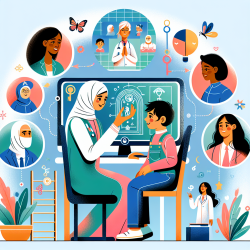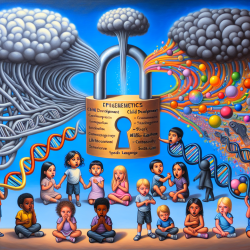Introduction
The COVID-19 pandemic has reshaped the educational landscape, prompting educators and policymakers to rethink the goals and methods of schooling. The research article "In Search of a Twenty-First Century Education Renaissance after a Global Pandemic" by Fernando M. Reimers provides valuable insights into how education systems can evolve to meet the demands of a rapidly changing world. This blog will explore key takeaways from the research and how practitioners can implement these insights to enhance their skills and improve educational outcomes.
Embracing a Broader Educational Vision
The pandemic has highlighted the need for a comprehensive approach to education that goes beyond traditional academic subjects. The research emphasizes the importance of educating the "whole child," focusing on a broad range of competencies essential for civic and economic participation. Practitioners are encouraged to integrate social-emotional learning, critical thinking, and global citizenship into their curricula. This approach not only addresses the immediate challenges posed by the pandemic but also prepares students for future uncertainties.
Implementing System-Level Reforms
Reimers' research underscores the necessity of system-level reforms to bridge the gap between ambitious educational aspirations and the actual learning experiences of students. Practitioners should advocate for reforms that align with the existing capacities and structures of their education systems while pushing towards more complex organizational forms. This involves a coordinated effort across all levels of governance and collaboration with stakeholders to ensure effective implementation.
Building Institutional Capacity
Effective implementation of educational reforms requires building institutional capacity. This includes investing in teacher training and professional development to equip educators with the skills needed to deliver a broadened curriculum. Practitioners should focus on creating a supportive environment that fosters continuous learning and adaptation among educators. By doing so, they can ensure that teachers are well-prepared to meet the diverse needs of their students.
Addressing Equity and Opportunity Gaps
The research highlights the critical role of education in closing opportunity gaps and promoting social improvement. Practitioners should prioritize equity in their educational practices, ensuring that all students have access to quality learning experiences. This involves recognizing and addressing the unique challenges faced by marginalized communities and implementing targeted interventions to support their educational success.
Encouraging Further Research and Innovation
While the research provides a robust framework for educational reform, it also acknowledges the limitations of the current knowledge base. Practitioners are encouraged to engage in further research and innovation to explore new strategies and solutions. By staying informed about emerging trends and best practices, educators can continue to refine their approaches and contribute to the ongoing evolution of the education system.
Conclusion
The pandemic has presented an opportunity for an educational renaissance, where practitioners can lead the charge in transforming education to better serve the needs of all students. By implementing the insights from Reimers' research, educators can enhance their skills and drive meaningful change in their communities. To read the original research paper, please follow this link: In Search of a Twenty-First Century Education Renaissance after a Global Pandemic.










